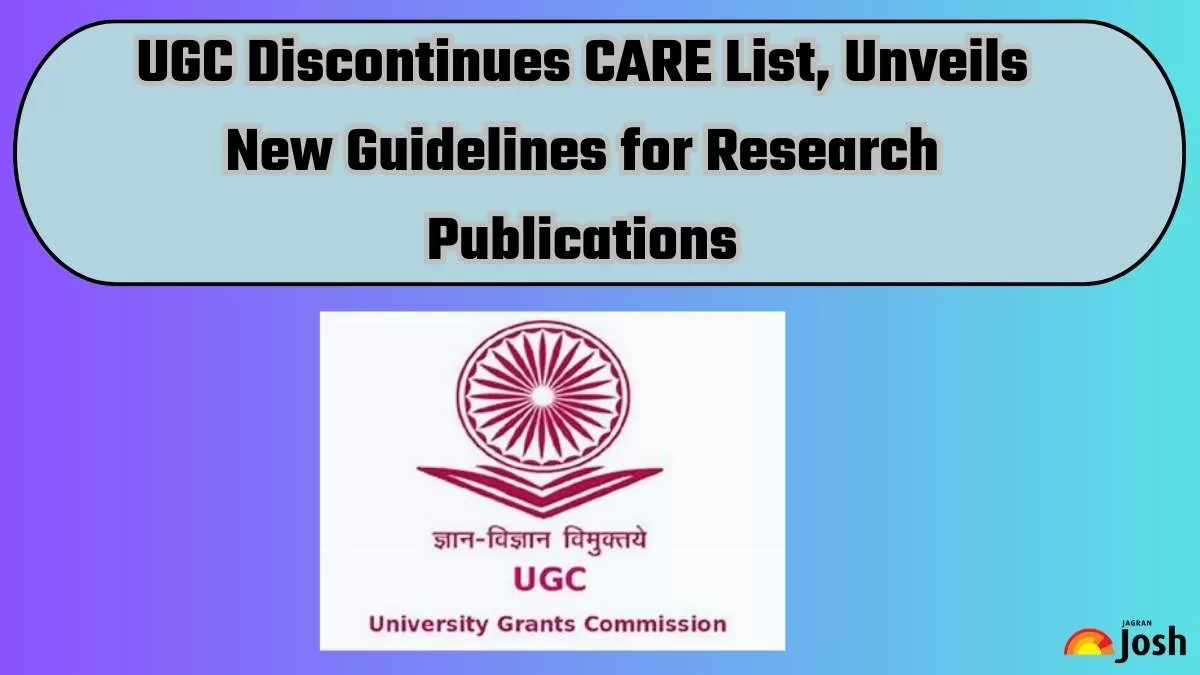The University Grants Commission (UGC) has announced that it will discontinue the use of its UGC-CARE list of journals, citing concerns over its subjectivity and lack of transparency. In place of the list, UGC has introduced new guidelines to assist faculty and students in selecting reputable peer-reviewed journals for their research. Faculty and students are invited to provide feedback on these guidelines by February 25.
Also Check: IIT Roorkee and Futurense introduce PG certificate program in Agentic AI and ML
Reasons Behind Researchers' Criticism of the UGC-CARE List
The UGC-CARE list, used to assess faculty performance and research proposals, was criticised for being too centralised and opaque. Researchers felt the selection process was slow and unclear, with unreliable journals included and insufficient representation of Indian-language publications. The list also created stress for researchers, who were pressured to publish in listed journals and faced uncertainty when journals were suddenly removed.
UGC's New Decentralised Method for Journal Evaluation
In reaction to these concerns, the UGC established an expert committee to assess the list and its effects on academic publishing. The committee's findings highlighted major flaws in the system, especially in how non-STEM (Science, Technology, Engineering, and Mathematics) disciplines were managed. It pointed out that the UGC-CARE model introduced inconsistent levels of subjectivity in journal evaluations, which compromised the credibility of the process.
UGC Chairman Mamidala Jagadesh Kumar stated that the UGC-CARE list's approach to assessing journals was considered insufficient, particularly for non-STEM fields. The decision to discontinue the list and implement a decentralised evaluation model is aimed at resolving these concerns.
He stated, "The expert committee discovered that the UGC-CARE model introduced varying degrees of subjectivity in the assessment process. It was especially criticised for its handling of journals in non-STEM disciplines, which raised concerns about the authenticity of publications listed on the UGC-CARE list."
The UGC's revised approach empowers universities to develop their own journal evaluation systems, guided by UGC principles. This decentralised model offers greater flexibility to accommodate diverse disciplinary needs and emerging research areas. The UGC anticipates this shift will foster academic freedom and alleviate the pressures associated with a centralised list.
However, there is a concern that, without proper systems in place, universities may unintentionally endorse research published in low-quality or fraudulent journals, which could tarnish their reputation. To prevent this, the UGC is encouraging experienced professors to assist younger researchers in making more informed journal selections, particularly to avoid predatory publishers.
The new guidelines also urge universities to develop robust systems for evaluating journals and enhance awareness of high publishing standards. The objective is to shift away from the old list and establish a more transparent, adaptable system that better represents the diversity of current research.
Also Check:
